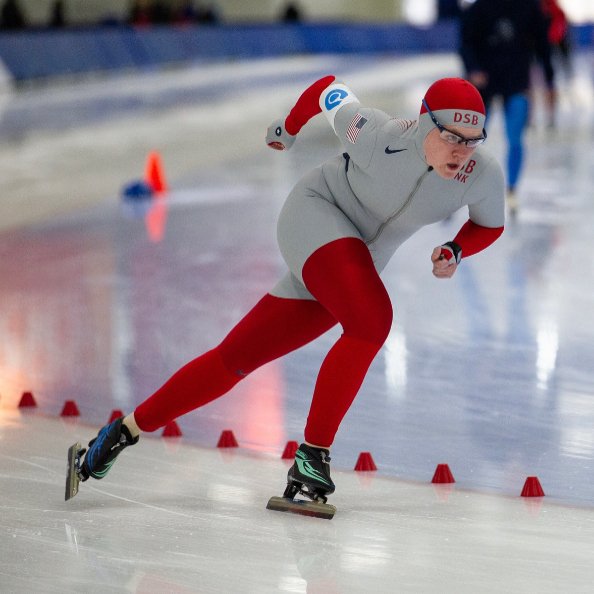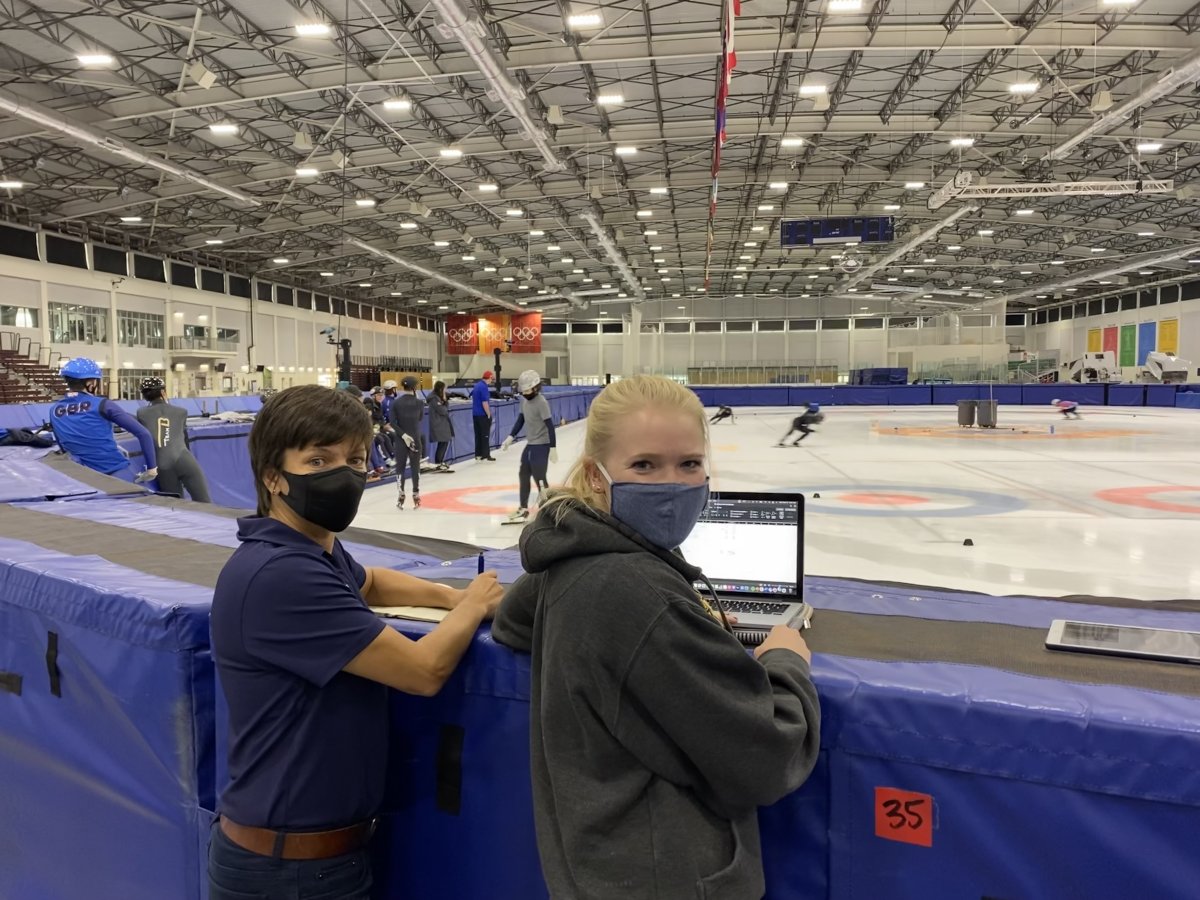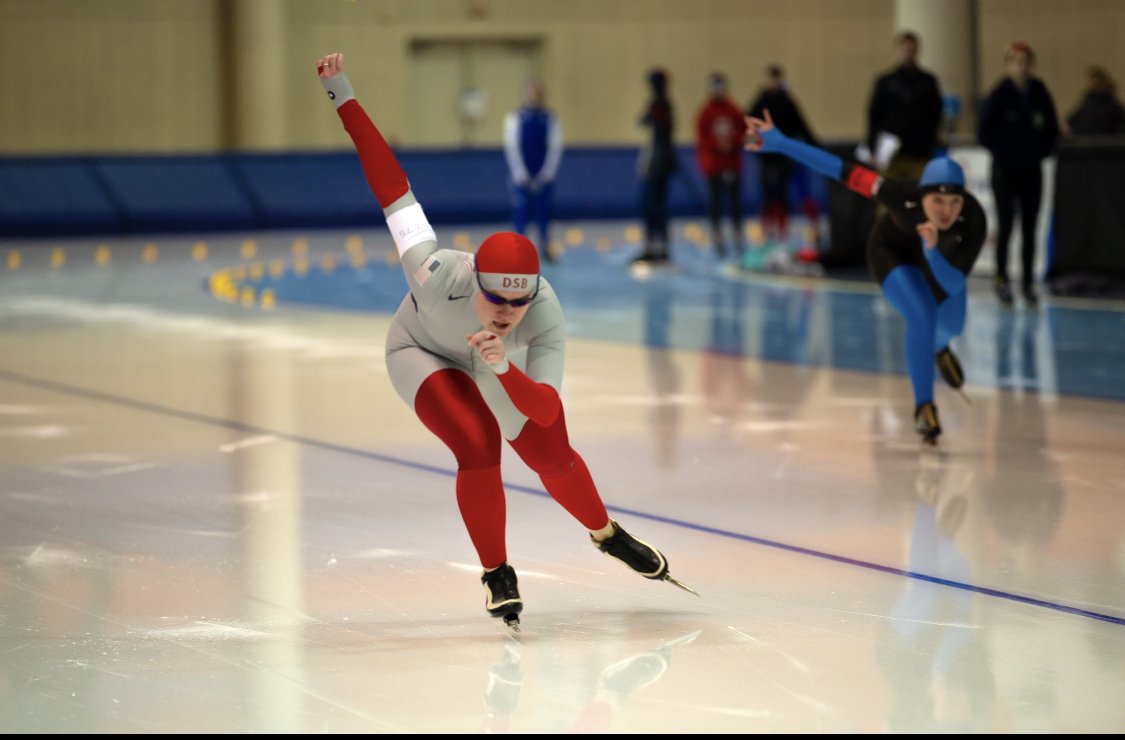Student spotlight: Ilsa Shobe

September 26, 2021—Ilsa Shobe is a senior pursuing a major in Biomedical Engineering with an emphasis on Biomechanics, as well as a minor in Norwegian.
She currently lives in Salt Lake City, where she is training as a long track speed skater with a goal of making the Olympic team. She is also competing for a chance to skate in the World University Games this winter.
She has represented the University of Minnesota at the World University Games in Minsk in 2018 and in Amsterdam in 2020. She still takes classes at the U of M, but does it all virtually.
You're a speed skater currently training in Utah for the Winter Olympics next year and World Championships. Tell me about your speed skating endeavors, and how you juggle intense training with your coursework.
As an athlete and BME major, balancing the two can be very difficult. Training is usually about 40 hours a week with two or more workouts a day.
I try to study in between workouts or at night after training but sometimes I have to jump on a lecture or take a quiz/exam while still at the rink. I have been training like this since I was 15 or 16 and have developed good time management skills. I love both speed skating and biomedical engineering, so it is pretty easy to stay on task and motivated.
I moved to Salt Lake City last year to train because the indoor track there allows for a much longer skating training season than the outdoor one in Roseville, Minnesota. It’s also been very different training in Salt Lake City because there I am on a team which has about 40 skaters from all over the world, whereas at home [in Minnesota] I was pretty much training by myself with my coach.

You're also starting a research project related to biomechanics and speed skating. Can you tell me more about the project?
This semester I am taking a Biomedical Engineering-directed study course involving research in collaboration with US Speedskating and faculty at the U of M. We are attempting to determine the optimal track (path) that an individual short track speed skater should take in a race.
This involves comparing the forces an athlete must withstand when taking various tracks versus the forces the athlete can actually generate themselves, measured by what they are able to produce on a force plate. Hypothetically this should help determine which tracks will put the least demand on the skaters’ legs so that they can still be explosive and fast at the end of a race.
What made you decide to major in biomedical engineering?
I decided to major in biomedical engineering in part because my mom is a biomedical engineer and would talk about interesting projects and I really enjoy problem solving. I also decided to major in BME because my ultimate career goal is to become a physician and I really like the engineering aspect of using problem-solving to help people.
What's your advice for new biomedical engineering majors?
My best advice for a BME major is to figure out what method of studying is the most efficient and effective for you and to stick to that method. Use your peers for help, whether it be in a group chat or in person.
I would also advise BME majors to not get overwhelmed by everything you need to do, instead break it into small pieces and work on one at a time. Dream bigger than you think possible, if your dreams don’t scare you, then you’re not dreaming big enough.
